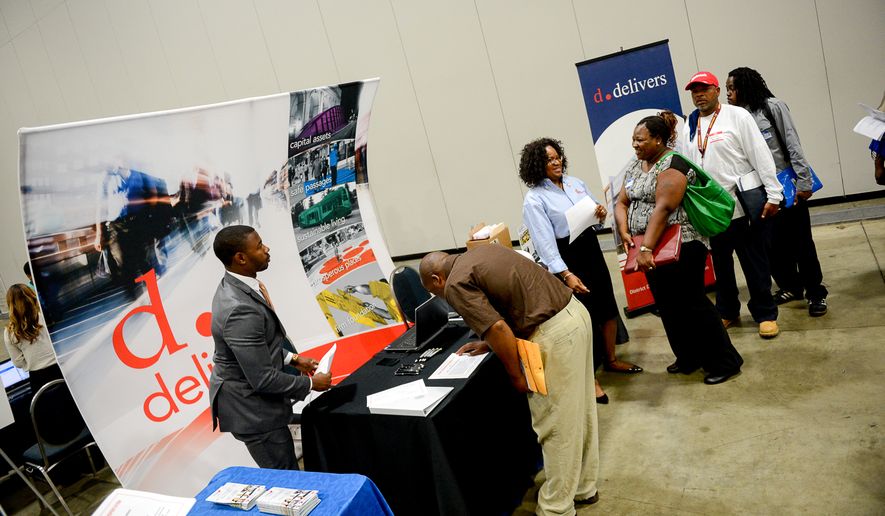OPINION:
When “Ruth Black” lost her job a few years back, she began staying in close contact with the D.C. Department of Employment Services (DOES).
Now 58 years old, she’s still in search of employment — and she’s at wit’s end.
After her unemployment ran out, she signed up for the DOES 50-plus jobs program, had one 15-minute interview with a DOES worker and then was given the bad news.
The program is no longer available, but “when it reopens, someone will be in touch with you,” she told me on Thursday.
If a DOES worker has called, snail-mailed or emailed her, they have called, snail-mailed or emailed you.
“Ruth Black” also told me this: Job seekers at DOES offices on Minnesota Avenue in Northeast were organized by “age groups,” with “people in their 20s and 30s” being directed for jobs with Metro and utility companies.
Holy age discrimination! It’s one thing to point young people and millennials toward high-paying blue-collar and career jobs. It’s quite another to exclude AARP-age applicants from such employment.
Good thing then that the D.C. Council is asking DOES about the city’s job training policies, practices and spending. The probing was indeed intense during a hearing on Tuesday.
D.C. Council member Elissa Silverman, the at-large independent who chairs the Committee on Labor and Workforce Development, wanted DOES Director Unique Morris-Hughes to detail how the money for the Local Adult Training Program was spent.
Miss Silverman, rightly, was clearly disappointed that the DOES chief had failed to report on the “programs we’re discussing today.”
Well, the devil was surely in the details, including the fact that hundreds of thousands of dollars of job-training funds were diverted by DOES for event planning, marketing, job fairs and the like. The types of gatherings where people eat, drink and confer on the taxpayers’ dime while taxpayers like Ms. Black can’t make an honest dollar because they’re unemployed and strum their digits waiting to hear from workers at the DOES.
Miss Silverman — and here again, rightly so — urged that Ms. Morris-Hughes give the council details about the DOES job training policies, practices and spending.
Miss Sliverman’s 12 lawmaking colleagues should have her back, especially since Ms. Morris-Hughes said she would oblige.
The hearing on Tuesday was a daylong affair that included a shouting match. Yet the takeaways are too few.
Here we are in the first quarter of a new fiscal year, and a D.C. agency chief can no more defend how public dollars were spent last fiscal year than she can detail what the current plans are.
Now’s the time to ask the DOES the easy questions: What does job training mean? How many D.C. residents have been placed in jobs via DOES programs, including job fairs and direct contacts with DOES offices and websites?
If the Bowser administration can’t answer those simple questions, it’s in trouble — and so, then, is “Ruth Black,” who at 58 didn’t want to use her real name for fear of her job-seeking info being “black holed.”
⦁ Deborah Simmons can be contacted at dsimmons@washingtontimes.com.




Please read our comment policy before commenting.